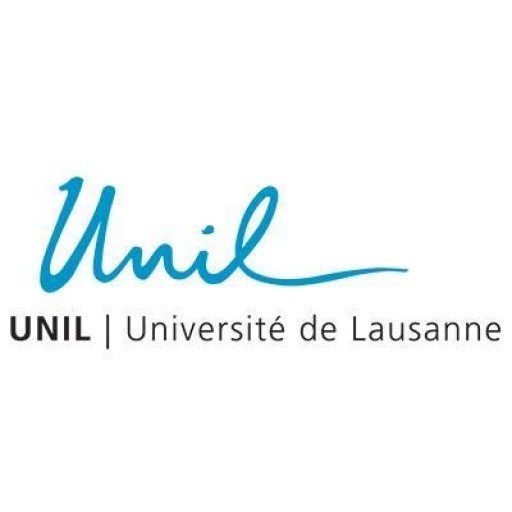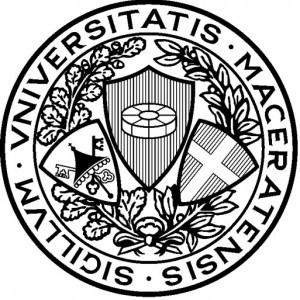Photos of university / #unilch
The Bachelor of Law and Economics at the University of Lausanne offers a comprehensive interdisciplinary program designed to equip students with a solid foundation in legal principles and economic theories. This innovative curriculum aims to develop critical thinking, analytical skills, and a deep understanding of how legal frameworks and economic policies intersect and influence each other within national and international contexts. Throughout the course of the Bachelor's degree, students will engage with a diverse range of subjects, including constitutional law, contract law, administrative law, microeconomics, macroeconomics, development economics, and behavioral economics. The program emphasizes both theoretical knowledge and practical application, preparing graduates for a variety of career paths in legal practice, economic analysis, consulting, public administration, or pursuing advanced studies.
Students will benefit from a multidisciplinary approach, integrating insights from law, economics, political science, and sociology, to foster a nuanced perspective on contemporary issues. Courses are taught by experienced faculty members recognized for their research and expertise, ensuring that students receive high-quality education grounded in current academic and professional standards. The program also includes opportunities for internships, seminars, and workshops that facilitate real-world experience and networking with professionals. As part of the university’s commitment to fostering international understanding, the curriculum incorporates various opportunities for exchange programs and collaborations with foreign institutions. Graduates of the Bachelor of Law and Economics will be well-prepared to analyze complex legal and economic problems, communicate effectively across disciplines, and contribute meaningfully to societal development in Switzerland and beyond. The program culminates in a final project that synthesizes students’ learning and demonstrates their readiness for professional or academic pursuits.
The Bachelor of Law and Economics program at the University of Lausanne offers a comprehensive curriculum designed to prepare students for a wide range of careers in the legal and economic sectors. The program combines rigorous training in legal principles with a thorough understanding of economic theories and practices, providing students with a multidisciplinary perspective essential for today's Complex global environment. Throughout their studies, students engage with core topics such as constitutional law, contract law, criminal law, and administrative law, while simultaneously exploring economic analysis, microeconomics, macroeconomics, and financial markets. The curriculum emphasizes critical thinking, analytical skills, and the ability to interpret legal texts and economic data effectively.
Students have opportunities to participate in practical experiences through internships, seminars, and workshops, which enable them to apply theoretical knowledge to real-world scenarios. Moreover, the program encourages an interdisciplinary approach, linking legal procedures with economic strategies, and fostering skills necessary for negotiation, policy analysis, and strategic decision-making. The program also includes courses on European and Swiss legal systems, ensuring that graduates are well-versed in regional legal frameworks and economic regulations. Language skills are also emphasized, with courses in English and French, reflecting the bilingual environment of the region. Students are guided by experienced faculty members who are active researchers and practitioners in their fields, providing mentorship and insights into current legal and economic issues.
Graduates of the Law and Economics program will be equipped to pursue careers in various sectors, including law firms, government agencies, international organizations, financial institutions, and consultancy firms. They will also have a strong foundation for further studies, such as master's degrees in law, economics, or public policy. The University of Lausanne’s commitment to academic excellence, combined with its emphasis on practical application and interdisciplinary learning, ensures that students graduate with the knowledge, skills, and competencies needed to succeed in today's dynamic professional landscape. This program is ideal for students who are interested in understanding the interconnectedness of legal systems and economic frameworks, and who aspire to make meaningful contributions in these fields.
The Bachelor of Law and Economics at the University of Lausanne is designed to provide students with a comprehensive understanding of the legal and economic principles that underpin modern societies. The program requires students to complete a total of approximately 180 ECTS credits, typically spread over three academic years. The curriculum integrates core courses in law such as constitutional law, contract law, administrative law, criminal law, and European Union law, alongside fundamental economics modules including microeconomics, macroeconomics, econometrics, and public finance. Students are also encouraged to develop interdisciplinary skills that enable them to analyze legal issues from an economic perspective and vice versa. In addition to compulsory courses, the program offers a selection of electives allowing students to tailor their degree according to their interests, such as international law, environmental law, or advanced economic theory. Practical training is incorporated through seminars, case studies, and internship opportunities, fostering applied knowledge. To graduate, students must pass all required coursework and complete a final thesis that demonstrates their ability to independently analyze complex legal and economic problems. The program emphasizes critical thinking, analytical skills, and clear communication, preparing graduates for careers in legal practice, economic consultancy, governmental agencies, or further academic study. Language proficiency in English and French is essential, with courses and examinations conducted in both languages. The program is characterized by small class sizes and close interaction with faculty members, ensuring personalized academic support. Overall, the Law and Economics program at the University of Lausanne aims to produce well-rounded graduates equipped with a multidisciplinary understanding to meet the challenges of a globalized world.
Funding for the Law and Economics program at the University of Lausanne is primarily provided through a combination of Swiss federal and cantonal grants, university-specific scholarships, and external funding sources. Students admitted to this program may have access to several financial aid options designed to support their studies. The university offers merit-based scholarships for outstanding students, which can cover partial or full tuition fees. Additionally, there are need-based grants available for students demonstrating financial hardship. International students may be eligible for specific scholarships or funding programs aimed at promoting diversity and academic excellence.
Students are encouraged to apply early for scholarships, as application processes often open at the beginning of each academic year and require documentation of academic achievements and financial need. The university’s financial aid office provides guidance and support to prospective and current students regarding available funding options, application procedures, and eligibility criteria. Besides university-specific funding, students can explore external scholarship programs offered by government agencies, foundations, and private organizations in Switzerland and abroad. These external sources may include exchange grants or sponsorships dedicated to students in law and economics.
The cost of attendance for the Law and Economics program includes tuition fees, which are typically subsidized by public funds, and living expenses, which vary depending on the student's lifestyle and accommodations. The university recommends budgeting for accommodation, textbooks, insurance, and daily living costs. Part-time employment opportunities are available on and around campus, enabling students to supplement their finances while pursuing their studies. The university provides career counseling and job placement services that can assist students in finding suitable employment. Moreover, some programs incorporate practical internships that might offer stipends or financial compensation, further helping students to finance their education. Overall, while the University of Lausanne provides several avenues for financial support, students should plan their finances carefully and explore all available funding sources to ensure a smooth academic journey.
The Bachelor's degree program in Law and Economics at the University of Lausanne offers students an interdisciplinary education that combines legal studies with economic analysis. This program is designed to equip students with a comprehensive understanding of the legal frameworks that underpin economic activities, including commercial law, constitutional law, and international law, alongside economic theories, quantitative methods, and policy analysis. Students gain analytical skills necessary for evaluating legal and economic issues, preparing them for careers in public policy, legal consulting, economic analysis, or further academic research.
Throughout the program, students engage in a variety of coursework covering areas such as contract law, corporate law, international trade, competition law, and public law, merged with economic disciplines like microeconomics, macroeconomics, econometrics, and development economics. The curriculum emphasizes critical thinking, problem-solving, and the application of theoretical knowledge to real-world situations. It also encourages the development of strong communication skills for effective advocacy and negotiation.
The program typically includes opportunities for internships, seminars, and study projects that enable practical experience and industry connections. The language of instruction is primarily French, but students may have options for courses in English or access to language support services. The flexible structure of the program allows students to tailor their studies according to their interests, with elective courses available in specialized fields such as environmental law, human rights, financial regulation, and economic policy.
Graduates of the Law and Economics program are well-prepared for entry into the legal profession or economic consultancy, or for advanced degrees such as Master’s or Doctorate programs. They benefit from the university’s strong network of academic and professional contacts within Switzerland and internationally. The university employs qualified faculty members with expertise in legal sciences, economics, and interdisciplinary research, ensuring students receive high-quality education grounded in current legal and economic developments. Overall, the program aims to produce versatile graduates capable of addressing complex legal and economic issues in various sectors, fostering critical thinking, and contributing to academic or professional fields at national or international levels.










